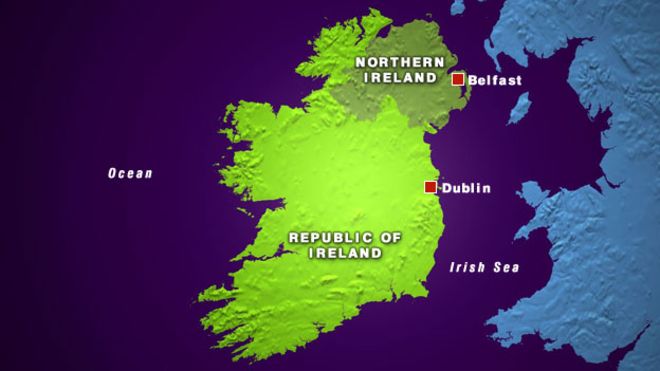As someone who is by conviction a republican and aspires to live in a united Ireland, I have to say that I have found the sudden outbreak of “unification” chatter in the aftermath of Brexit a bit far-fetched and, alas, counter-productive.
There is absolutely nothing apart from the grossest wishful thinking to suggest that the decision of the UK to leave the EU betokens a present desire among the majority of people in Northern Ireland to leave the UK and to be unified with the Republic.
Under the terms of the Good Friday Agreement, the British Government are obliged to hold a formal poll on unification only if it appears likely that a majority of the people of Northern Ireland would favour such an outcome.
There is simply no logical connection between a Unionist farmer having voted “Remain” and any likelihood that he or she favours Irish reunification at this point. The same applies to many Catholics in the North who voted “Remain”.
In November last, RTE carried out opinion polling on both sides of the Border. Support for Irish unity “in your lifetime” was 66% in the South with 14% opposed. North of the Border, 30% of all voters would like to see a united Ireland in their lifetime but 43% were opposed. The “don’t knows” were 20% in the South but 27% in the North.
Those figures could change but they clearly show that there is a long way to go before a majority in Northern Ireland would vote for Irish unity.
Brexit is an important ingredient in the mix. The demographics of Northern Ireland are changing quite rapidly. A majority of school children in Northern Ireland is now of Catholic background. Within 20 years, Catholic voters may well out-number Protestant voters. Differential migration rates among undergraduates may well accelerate the achievement of “confessional equality”.
A clear majority of university undergraduates in the North are already from Catholic backgrounds.
But welcome as such a new equilibrium would be in terms of creating a climate for equal partnership among the people in Northern Ireland and ending the dynamic of religious majoritarian-ism there, it does not foretell a sudden see-saw movement towards unification in the short, medium or long term.
The political case for a united Ireland (in which I believe) must be preceded by a lengthy period of mutual reconciliation. That process is the task and vocation of true republicans on this Island.
The tricolour is not “a flag of green white and gold”; it is a flag of green, white and orange. And the Orange panel stands for something which we have got to value, if we aspire to unite the Irish people under that flag.
I do not see a “hard border” as a possibility – now or in the future. An irony of Brexit is that it may see the introduction of migration monitoring and control between Northern Ireland and Britain rather than between North and South. The same may apply to hard Customs controls.
Can Northern farmers trust the UK to support them to the same extent as the EU does at present? Is EU funding for cross-border and cross-community initiatives and EU Social Fund support for the North going to continue at current levels? Is Erasmus funding going to continue for undergraduates?
Is Northern Ireland going to be an attractive place for FDI post-Brexit? Is low corporation tax now dead as an option for Northern FDI policy?
Are single-nation Tories going to concentrate infrastructural investment on post-industrial northern England to the exclusion of post- Belfast Agreement Northern Ireland?
All these “known unknowns” are real issues. They are deep worries for all decent people in the North – Orange or Green. And they should be worries for all decent people in the South too.
The most important aspect of Brexit for North-South relations and for Green-Orange relations on this island is how we conduct ourselves now.
Gerry Adams’s call for a unification border poll was cack-handed, weak political playing to his own constituency. It was not statesman-like.
Enda Kenny’s failure to consult Arlene Foster about his All-Ireland Brexit Forum proposal was equally cack-handed, weak and incompetent. The DUP leader could easily have been quietly approached to partake in a less threatening, more un-structured dialogue. That would have shown respect.
Trust and respect are the basic building blocks of reconciliation and partnership on this island. Any other approach amounts to opportunist, counter-productive rhetoric and posturing.
And then there are economics. We Southerners often assume that the Orangeman is led by his nose for prosperity and that his loyalty has the thickness of a large denomination bank note.
But just imagine if the voters of the South were asked to take up the UK’s massive cost of subvention of Northern Ireland as the price of raising our flag over the fourth green field. It hardly bears thinking about.
Aspirations are cheap and “low-maintenance”. Leaps of imagination unaccompanied by action and commitment may provide column inches for the silly season.
Martin and Mary McAleese showed respect, courage and empathy in building bridges to the Orange.
Now is the time for respect. Now is always the time for respect.

